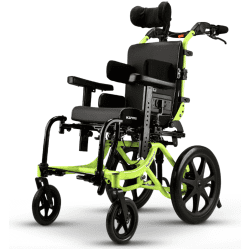What Causes Autism

Table of Contents
ToggleAutism is an increasingly common diagnosis given to children in the United States, with current estimates indicating that 1 in 68 American children are on the autism spectrum. While there isn’t a definitive answer as to why this rate is increasing, research has provided us with some insight into what causes Autism and how it can be prevented or managed.
In this blog post, we’ll discuss what causes autism and the range of factors that have been studied regarding the development of Autism, including genetic predisposition and environmental stressors like exposure to toxins or psychological stress. We’ll then discuss potential treatment strategies for managing day-to-day life experiences with Autism.
Causes of Autism
Autism’s precise etiology remains unknown after extensive study. A number of things may influence its progression. Those things are:
- Inheriting Autism from a sibling
- The greater age difference between the parents during conception
- Developmental delays in brain expansion
- Premature delivery
Most studies on Autism’s causes have pointed to an interaction between hereditary and environmental variables.
Environmental Causes
One of the most extensively studied environmental causes of Autism is prenatal exposure to environmental toxins, particularly heavy metals such as lead and mercury. These heavy metals are known to cross the placenta and accumulate in the fetal brain, disrupting normal neurodevelopmental processes.
Several studies have found that maternal exposure to high levels of lead and mercury during pregnancy is associated with an increased risk of ASD in offspring.
Exposure to other environmental toxicants, such as air pollution and pesticides, has also been linked to an increased risk of ASD. For example, a study conducted in California found that children born to mothers who lived in areas with high levels of traffic-related air pollution during pregnancy were more likely to develop ASD. Similarly, several studies have reported a positive association between pesticide exposure and ASD.
Other environmental factors implicated in the development of ASD include viral infection during pregnancy, maternal stress, and nutritional deficiencies.
Studies have found that maternal exposure to certain viruses during pregnancy, such as rubella and cytomegalovirus, is associated with an increased risk of ASD. Maternal stress during pregnancy has also been linked to an elevated risk of ASD in offspring. Several studies have identified a link between nutritional deficiencies, particularly in vitamin D and ASD.
While the exact mechanisms by which environmental factors contribute to the development of ASD remain unclear, it is becoming increasingly evident that environmental factors, in conjunction with genetic predisposition, play a significant role in the pathogenesis of this disorder.
It is, therefore, crucial to identify and avoid exposures to environmental toxins and other harmful agents during prenatal and early childhood development to reduce the risk of ASD.
Genetic Causes
While the exact causes of ASD are not yet fully understood, genetic factors have been identified as one of the primary causes of the disorder.
Studies have shown that individuals with a family history of ASD are at a higher risk of developing the condition. In fact, studies have revealed that the heritability of ASD can be as high as 90%. This means that genetic factors play a major role in developing ASD in individuals.
Several genes have been identified as contributing to the development of ASD. These genes are involved in brain development, synaptic function, and immune system regulation. In particular, mutations or deletions in the SHANK3 gene have been associated with a significantly increased risk of ASD.
Recent studies have also shown the role of de novo mutations. A de novo mutation is a mutation that arises for the first time in a family rather than being inherited from one of the parents.
These mutations are thought to occur spontaneously during early prenatal development and can affect genes that are critical for brain development and synaptic function.
Myths About Autism Causes
Scientists may not yet know what triggers Autism, but they have debunked some popular theories regarding the disorder’s origins. These factors are:
MMR Vaccination
Despite a widespread belief that vaccines, particularly the MMR vaccine, can cause Autism, no scientific evidence supports this assertion. The idea that MMR vaccination causes Autism is a myth perpetuated by misinformation and fear-mongering.
Numerous studies have been conducted on the subject, all of which have found that vaccines, including the MMR vaccine, do not cause Autism. In addition, the Centers for Disease Control and Prevention (CDC) has conducted extensive research on the safety of vaccines and has found no evidence linking vaccination to the development of Autism.
The MMR vaccine is crucial in preventing the spread of serious infectious diseases such as measles, mumps, and rubella. The vaccine has been used safely and effectively for more than 50 years and has been credited with saving countless lives.
Hence, the belief that MMR vaccination causes Autism is a myth that lacks scientific evidence. Nevertheless, vaccination remains a crucial public health tool, and parents should continue to follow vaccine schedules recommended by medical professionals to protect their children and prevent the spread of disease.
Parenting and Negligence
For a long time, there has been a myth that poor parenting and negligence could cause Autism. However, this myth has been debunked by scientific studies and experts in the field.
While the exact causes of Autism are not fully understood, it is now widely recognized that parenting style or a lack of care and attention cannot be blamed for the development of the condition.
Parents already struggling with raising an autistic child can feel an immense sense of guilt, shame, and isolation. Unfortunately, blaming them only adds to their burden and creates unnecessary stress and trauma.
It is becoming increasingly clear that Autism is a complex condition that requires a multidisciplinary approach to diagnosis, treatment, and care. There are various therapies and interventions available that can help people with Autism lead fulfilling and productive lives.
However, we must first put aside the myths and misconceptions surrounding the condition and focus on understanding the true causes and underlying mechanisms of Autism.
Treatment Strategies
When it comes to managing day-to-day life experiences with Autism, a variety of potential treatment strategies can be employed. These strategies can assist individuals with Autism in navigating daily life and receiving the support they need to thrive. Below are some of the most prominent and effective treatment strategies for Autism.
Behavioral Therapy
This type of therapy involves teaching individuals with autism social and communication skills and coping mechanisms for dealing with anxiety and other related issues.
Some of the most common types of behavioral therapy include Applied Behavior Analysis (ABA), which focuses on teaching new skills through positive reinforcement, and Cognitive Behavioral Therapy (CBT), which aims to change negative behaviors by identifying and modifying negative thought patterns.
Medication
In some cases, medication can be effective in managing the symptoms of Autism. Antipsychotic medications, for example, can be used to reduce aggression and irritability, while antidepressants can help to manage anxiety and depression.
Support Services
There are a variety of support services available for individuals with Autism. These might include occupational therapy, speech therapy, and physical therapy, all of which can help individuals build skills and navigate the challenges of daily life.
Assistive Technology
Technology can be a powerful tool for individuals with Autism. For example, specialized apps and software can help with communication, organization, and daily living tasks, while assistive devices such as weighted blankets can provide comfort and reduce anxiety.
Alternative Therapies
Some individuals with Autism may find relief through alternative therapies such as yoga, meditation, and acupuncture. While these therapies may not be scientifically proven to help with autism symptoms, they can still be effective in promoting relaxation and reducing stress.
Frequently Asked Questions
Do vaccines, particularly the MMR vaccine, cause autism?
No, scientific evidence has consistently debunked the myth that vaccines, including the MMR vaccine, cause autism. Extensive research conducted by the CDC and numerous studies have found no link between vaccination and the development of autism.
What role does genetics play in autism?
Genetic factors have been identified as one of the primary causes of autism. Studies have shown that individuals with a family history of autism are at a higher risk of developing the condition. Certain genes involved in brain development, synaptic function, and immune system regulation have been associated with autism.
Is there a link between viral infections during pregnancy and autism?
Yes, there is evidence suggesting a potential link between viral infections during pregnancy and the risk of autism in offspring. Several studies have identified associations between maternal viral infections, such as rubella and cytomegalovirus (CMV), and an increased likelihood of the child developing autism.
When pregnant women contract certain viruses, they can cross the placenta and affect the developing fetus. These viral infections can disrupt normal brain development and potentially contribute to the development of autism. It is important to note that not all viral infections during pregnancy lead to autism, and the risk is generally considered to be relatively small.
Are environmental factors implicated in the development of autism?
Yes, environmental factors, in conjunction with genetic predisposition, are believed to play a significant role in the development of autism. Prenatal exposure to environmental toxins such as lead and mercury, as well as air pollution and pesticides, have been linked to an increased risk of autism.
Maternal viral infections during pregnancy, maternal stress, and nutritional deficiencies are also potential environmental factors.
Bottom Line
Ultimately, there is no one-size-fits-all solution for managing day-to-day life experiences with Autism. What works for one person may not work for another, and individuals and their families need to work with their healthcare providers to find the best treatment strategies for their unique needs. However, with the right support and resources, individuals with Autism can lead happy, fulfilling lives.






































